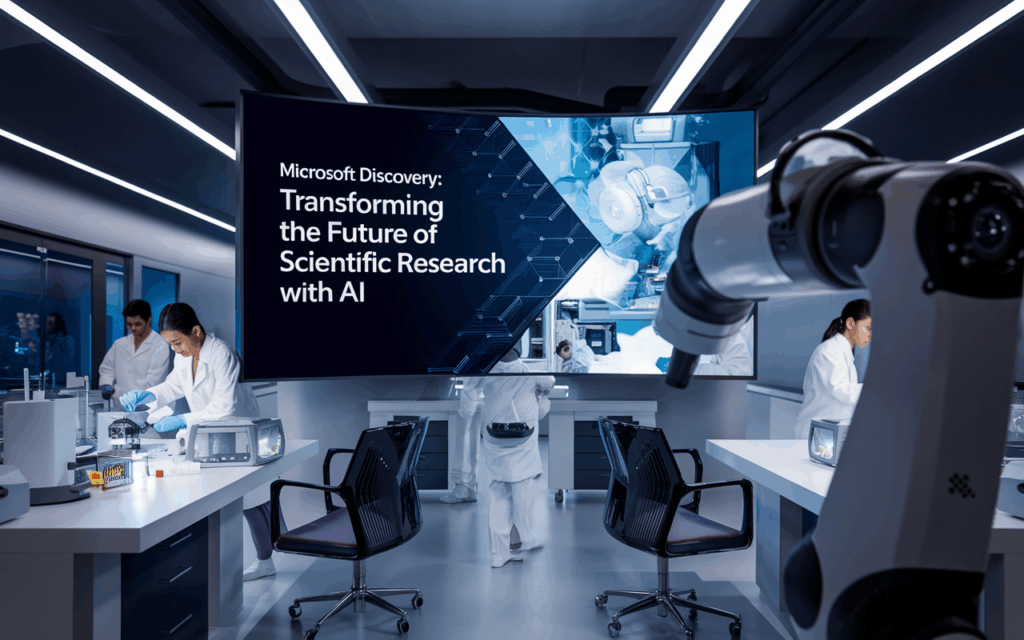Microsoft’s AI Leap: A New Era for Scientific Discovery? 🤖🔬
In an exciting new development, Microsoft has announced the launch of Microsoft Discovery at its Build 2025 conference! 🌟 This innovative platform is designed to harness the power of agentic AI to transform the scientific discovery process. Sounds promising, right? But is it enough to turn AI into a bona fide research partner? Let’s dive into the details!
What is Microsoft Discovery? 🛠️
Microsoft Discovery aims to revolutionize how researchers conduct scientific inquiries by offering an end-to-end solution that includes everything from scientific knowledge reasoning to hypothesis formulation, candidate generation, and in-depth simulation and analysis. The idea here is to leverage AI to speed up research and enhance its accuracy, ultimately resulting in breakthroughs that could change our understanding of various fields, as stated by Microsoft in their release.
The AI Collaboration: Hope or Hype? 🤔
While the concept seems exciting, the reliability of AI in scientific research still raises eyebrows. Many researchers are skeptical about whether AI can genuinely enhance the discovery process. After all, AI systems have yet to deliver groundbreaking results consistently. For instance, Google’s AI assisted in the creation of 40 new materials last year, but analyses found none were actually new! 🌪️ Furthermore, numerous AI-driven drug discovery initiatives have encountered significant trial failures, which only adds to the doubts surrounding AI's effectiveness in science.
Unresolved Challenges 🔍
One of the principal challenges AI faces is dealing with the multitude of confounding factors that can arise during the scientific inquiry. While AI may excel at narrowing down possibilities, its ability to do innovative problem-solving and come up with unknown breakthroughs is still in question. Many experts believe that the current AI models lack the nuanced understanding necessary for such complex tasks.
The Future of AI in Science 🧪
Microsoft is certainly not alone in the race to integrate AI into scientific research. Companies like Google and Anthropic are pushing forward with their versions of AI systems aimed to aid scientists with hypothesis generation and research planning. However, there remains a significant gap between expectation and reality.
As we stand at the crossroads of AI and science, the hope is that platforms like Microsoft Discovery can pave the way for more reliable AI tools that genuinely assist researchers rather than hinder them. The question remains—can Microsoft's new venture prove to be the game-changer the scientific community is waiting for? 🎯
Conclusion 🌟
Only time will tell if Microsoft Discovery will yield the promised results, but this announcement certainly adds an interesting layer to the ongoing dialogue about AI's role in scientific progression. As advancements continue, it’s crucial for researchers, developers, and AI enthusiasts alike to remain cautious yet optimistic.
What are your thoughts? Can AI genuinely accelerate scientific discovery, or is it just another technology hype train? 🚂💭 Let’s discuss in the comments!
#AI #ScientificDiscovery

More Stories
Meta’s AR Ambitions and AI Safety: Insights from the Equity Podcast
Insight Partners Data Breach: A Wake-Up Call for Cybersecurity Awareness
Lovable’s Ascendancy: Anton Osika at TechCrunch Disrupt 2025